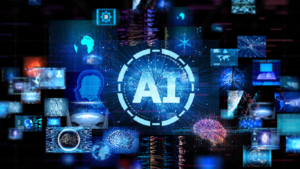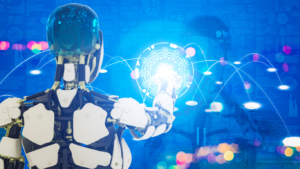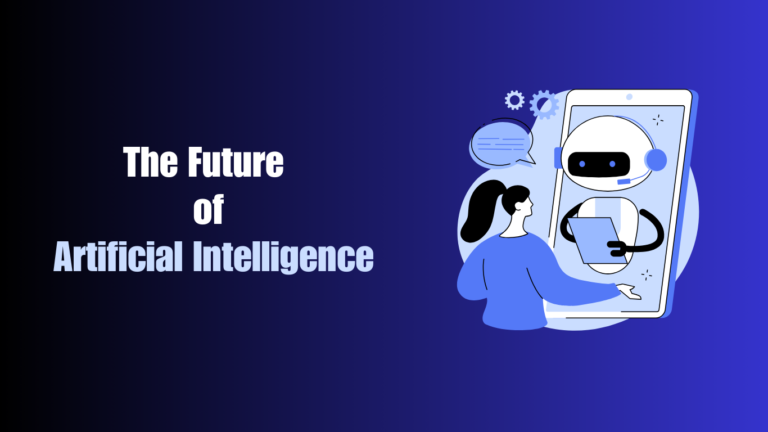Artificial Intelligence (AI) isn’t just science fiction anymore—it’s here and transforming the world as we know it. From chatbots and self-driving cars to AI-powered medical diagnoses, technology is evolving at an astonishing rate. But what’s next? Let’s dive into the Future of Artificial Intelligence for 2025.
AI has already become an integral part of our daily lives, whether we realize it or not. From the recommendation engines on streaming platforms to fraud detection in banking, AI is working behind the scenes to make our lives more efficient. However, as AI capabilities advance, concerns surrounding ethics, job displacement, and privacy are growing. How will AI impact industries, societies, and individuals shortly? This article will explore the most promising AI trends, potential challenges, and what we can expect from AI by 2025.

Artificial Intelligence in Everyday Life
Our homes and gadgets are getting smarter. Virtual assistants like Alexa, Google Assistant, and Siri are becoming more intuitive, anticipating our needs before we even voice them. By 2025, Artificial Intelligence will seamlessly integrate into our daily lives, offering hyper-personalized experiences.
From smart refrigerators that suggest recipes based on available ingredients to AI-driven home automation systems that adjust lighting and temperature based on preferences, AI will continue to enhance convenience and efficiency in everyday life.
Artificial Intelligence in Healthcare
Artificial Intelligence is already diagnosing diseases faster and more accurately than humans. In 2025, expect even more sophisticated AI-powered healthcare tools, from predictive analytics to robotic-assisted surgeries. AI will help doctors make better decisions, reducing misdiagnoses and improving patient care.
Additionally, AI will contribute to the development of new drugs by accelerating research and identifying potential treatments more efficiently. Wearable health devices equipped with AI will provide real-time health monitoring, alerting individuals and doctors to potential health risks before symptoms become severe.

Artificial Intelligencein Business and Finance
Businesses are leveraging Artificial Intelligence for automation, fraud detection, and even customer service. In 2025, AI-driven analytics will refine business strategies, while AI chatbots will handle customer inquiries, making human intervention minimal.
Financial institutions will benefit from AI-powered risk assessment, investment forecasting, and fraud prevention mechanisms. AI will also streamline operations in industries such as manufacturing, supply chain management, and human resources.

The Rise of Generative AI
AI isn’t just about logic—it’s also about getting creative. AI-generated artwork, music compositions, and even entire books are already making waves. By 2025, expect AI to assist humans in creative fields, blurring the lines between human and machine-generated content.
AI-driven creativity will revolutionize entertainment, marketing, and content creation, making personalized experiences more immersive and engaging.

Artificial Intelligence in Cybersecurity
AI is a powerful tool for cybersecurity, detecting and preventing cyber threats in real time. However, cybercriminals are also using AI to develop sophisticated attacks. In 2025, cybersecurity will be an ongoing battle between AI defenders and AI-powered threats.

Ethical Concerns in AI Development
We must address ethical issues like algorithmic bias, privacy concerns, and lack of transparency as AI becomes more ingrained in society. Developers and policymakers must work together to ensure that AI is fair and ethical.
Conclusion
AI is no longer a futuristic fantasy—it’s an ever-present reality. The advancements expected by 2025 will shape our world in ways we can only begin to imagine. While challenges remain, AI’s potential to improve lives is undeniable. The question isn’t whether AI will transform the future—it’s how we’ll shape it to benefit us all.
As we move forward, it’s crucial to balance innovation with responsibility. AI should be developed with ethical considerations in mind, ensuring fairness, transparency, and inclusivity. The future of AI is promising, but it will require collaboration between governments, businesses, and individuals to maximize its benefits while mitigating risks.
Frequently Asked Questions (FAQs)
Will AI take over human jobs?
AI will replace some repetitive jobs but also create new opportunities in emerging fields.
Is AI safe to use in healthcare?
Yes, AI enhances diagnostics and treatment plans, but human oversight remains essential.
How will AI affect daily life in 2025?
AI will make homes smarter, improve virtual assistants, and optimize personalized experiences.
What are the biggest risks of AI?
Ethical concerns, bias in algorithms, privacy threats, and AI-driven cyberattacks are major risks.
How can AI help combat climate change?
AI optimizes energy use, predicts environmental changes, and helps develop sustainable solutions.

